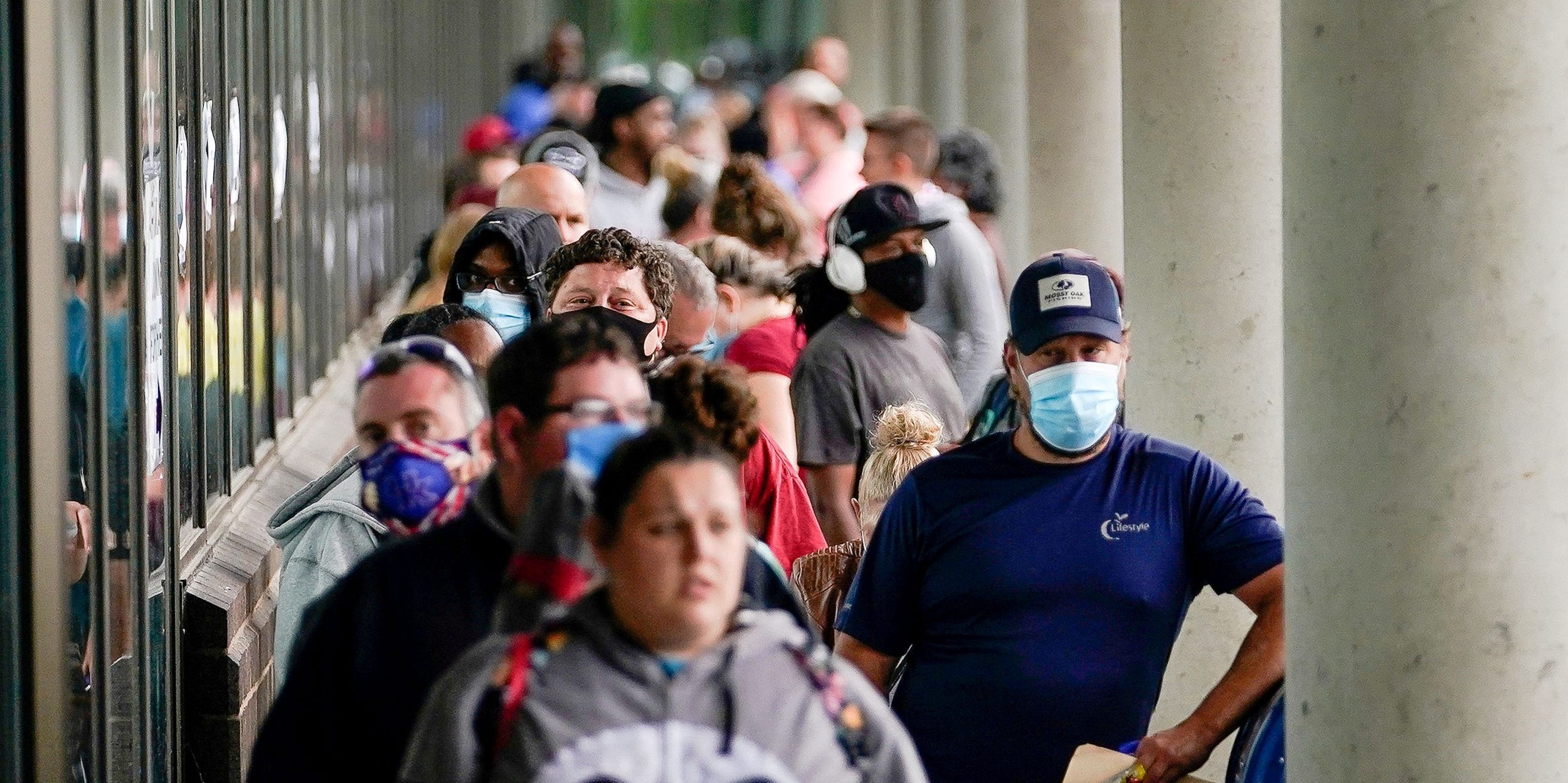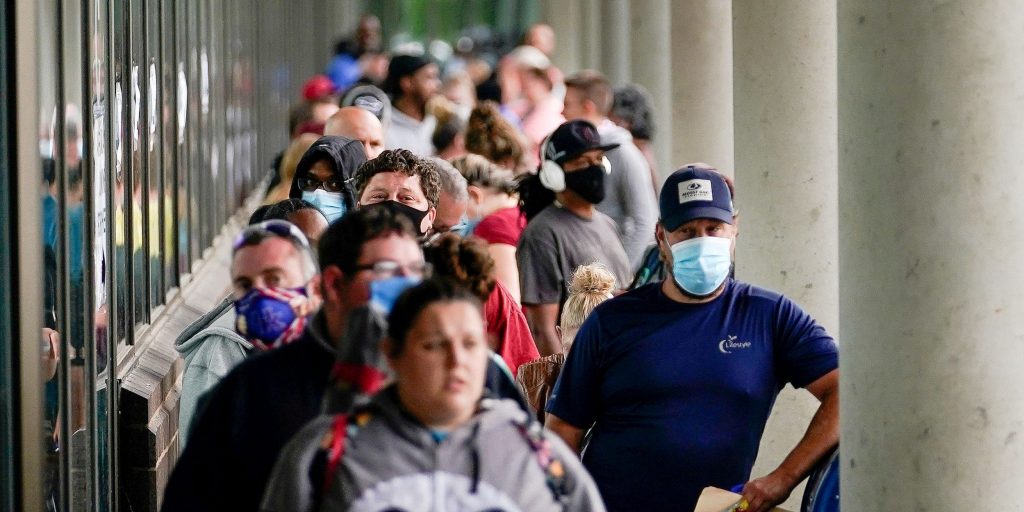
- Jobless claims rose to 230,000 last week, leaving filings back around pre-crisis levels.
- The print landed above the median economist estimate of 200,000 claims.
- Continuing claims fell to 1.56 million for the week that ended January 1, beating estimates.
More people filed for unemployment insurance last week as new data showed the US jobs recovery taking a step back.
Jobless claims totaled 230,000 last week, the Labor Department said Thursday. Economists surveyed by Bloomberg expected claims to dip to 200,000. The print is the highest since mid-November and snaps a four-week streak of claims hovering around the 200,000 level.
The previous week's reading was unrevised from 207,000.
Continuing claims, which count Americans continuously receiving unemployment aid, fell to 1.56 million for the week that ended January 1. That landed below the median forecast of 1.73 million claims and marked the lowest count since June 1973.
The Thursday claims report is the first to follow last week's disappointing jobs data. The US added just 199,000 nonfarm payrolls in December, less than half what economists expected and the smallest gain in all of 2021. While the unemployment rate dipped to 3.9%, labor force participation held flat, signaling millions of people are still waiting to return to the workforce.
It's possible actual December hiring fared better than the government's report showed. The payrolls count is preliminary, and several past readings have been revised significantly higher. The household survey in the report showed 651,000 jobs added last month, marking yet another sharp divergence between the headline establishment count and the household sum. Similarly, ADP's private payrolls report revealed the US added 807,000 jobs in December, more than quadrupling the government's reading.
Still, the December data doesn't reflect the worst of the Omicron wave, teeing January's report up for even weaker readings. Case counts spiked higher soon after the jobs report's survey period, and previous virus waves have seen hiring slow as businesses slow their expansions and people stay home to avoid infection.
The new claims data matches the disappointing signals from last week's report. The unemployment rebound isn't as complete as past weeks suggested, and as virus cases keep climbing, the path to a full recovery is likely to get more turbulent.

